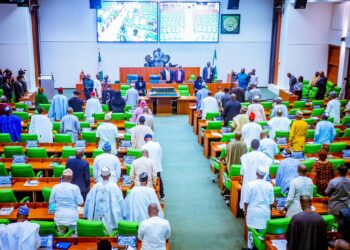As part of its continued intervention in the foreign exchange market, the Central Bank of Nigeria (CBN) injected a cumulative sum of $2.63 billion to further sustain relative stability in the Foreign Exchange (FX) market.
According to the latest CBN’s monthly economic report covering the month of July 2019, Nigeria’s apex bank made available a whopping sum of $2.63 billion to authorised dealers in July, compared to US$2.50 billion supplied in the previous month. This indicates an increase of 5.2% above the level in the preceding month.
Number Breakdown: The breakdown of the Central Bank’s intervention in the FX market in the month of July 2019 shows that interbank sales rose by 1.9% to $0.08 billion, compared to the level in the preceding month.
- Currency sales to the Bureau De Change (BDC) rose by 3.8% and estimated at US$1.08 billion. In essence, injection in BDC FX window scooped the biggest share.
- Swaps transactions fell by 55.2% to US$0.13 billion below the preceding month’s level of US$0.29 billion.
- The average exchange rate of the naira to the US-dollar, at the inter-bank segment, was N306.94/US$, representing a depreciation of 0.02%.
- The average exchange rate at the BDC segment, at N359.43/US$, appreciating by 0.1% relative to the level at the end of the preceding month.
- At the “Investors” and “Exporters” (I&E) window, the average exchange rate of the naira vis-à-vis the US dollar, was ₦361.26/US$, indicating that naira depreciated by 0.2%.
[READ MORE: CBN blows $36 billion defending the naira in 2018]
Numbers Explained: The higher sales of FX in the month of July must have been triggered by the high demand for FX at the BDC segment which recorded a 3.8% increase. Unlike the interbank segment, demand for FX is always on the rise at the BDC segment. This means that the Central Bank had to increase its supply of forex to ease pressure on the Nigerian Naira.
At the “Investors” and “Exporters” (I&E) window, the average exchange rate of the naira vis-à-vis the US dollar, at ₦361.26/US$, depreciated by 0.2% below the level in the preceding month.
Consequently, the premium between the exchange rates at the interbank and BDC segments narrowed by 0.2% point to 17.11% from 17.27% in June 2019. The premium between the BDC and I&E rates widened by 0.5% point.

[ALSO READ: CBN Governor blows hot regarding 41 banned items]
Reserves on the low: While the CBN continues to intervene in the FX market, burning through the reserves means the apex bank is sacrificing FX savings for naira stability.
- A further look into the CBN report shows the gross external reserves stood at US$43.96 billion at the end of July 2019, indicating a decline of 1.8% ($790 million) below the US$44.75 billion recorded at end-June 2019.
- According to the bank, the decrease was due, mainly, to increased foreign exchange market interventions and public sector payments.
- Also, the external reserves position could finance 6 months of imports of goods and services, and 10.2 months of goods only, using the import figure for the first quarter of 2019.
- Similarly, a breakdown of the external reserves by ownership showed that the share of Federation was $0.004 billion (0.01%) of the total; Federal Government, $7.62 billion (17.3%); and the CBN, $36.33 billion.
The Upshots: The apex bank under Mr. Godwin Emefiele, is committed to continuing its intervention policy in the FX market to stabilise the naira. To further corroborate this, the Monetary Policy Committee noted in its last meeting in July that the bank should continue its intervention to stabilize the foreign exchange market.
While the intervention will keep the naira stable for now, analysts are of the opinion that it is only a matter of time before the CBN will float the exchange rate in the face of falling oil price. The CBN governor had earlier disclosed that naira could only be considered to be floated if oil dropped to between $30 billion and $25 per barrel.
























One is sad that when you go to most of our banks around hardly can get bankers to explain all that is going on at the Nigerian Stock Exchange .
It’s just like you are speaking in tongue to them if they invest in the bank they are working with , the best answer some of them will dispose is that their bank is not selling shares now .
Will you not be surprised if such a banker knows the existence of CSCS , SEC etcetera
Mention shares dematerialization , you’ll just see the response .
There is now way for now where people in remote areas or the less privilege people can process e-dividends even not for the uncaring registrars .
Grassroot endeavours needed in this regard .